Healthy plants lead to healthy crops, and one of the most important things to consider when growing cannabis is ventilation. Special tents with special ventilation allow you to grow cannabis (Cannabis grow) year round, but without adequate ventilation, the plants will have problems and poor cultivation. In this publication, we will look at the importance of ventilation and how it affects cannabis.

Why do you need ventilation in cannabis greenhouses?
Outside, cannabis plants are constantly exposed to natural elements, including a constant breeze and a constant supply of carbon dioxide. As such, indoor growers will want to recreate this natural environment, and a reliable ventilation system can do just that.
An adequate ventilation system replenishes fresh air for photosynthesis, regulates temperature and humidity levels, and prevents the development of disease and pests.
Air circulation
Plants cannot survive without constant fresh air because they will not be able to photosynthesize. Photosynthesis is the process by which plants convert light energy into chemical energy. They do this by using natural sunlight and carbon dioxide, producing the necessary carbohydrates and releasing oxygen as a byproduct.
Moisture control
When cannabis plants grow, they evaporate water through the eyelids and leaf cuticle through the process of transpiration, which increases indoor humidity. Therefore, it is important to have a constant flow of fresh air to remove standing air and prevent pathogens and mold.
Temperature
Temperature is also important for yield. Extreme temperatures and drastic changes in humidity can negatively affect plants. Whether HPS or LED bulbs are used, they produce excess heat, so it is important to have good ventilation to remove unwanted heat.
Harmful insects (pests)
Stagnant air is the perfect environment for pests such as smoldering insects, spider mites and fungal insects to develop. Reduced humidity and constant airflow create an unfavorable environment for pests and diseases.
Consequently, lack of ventilation can negatively affect plant yields and increase the risk of pests and diseases.
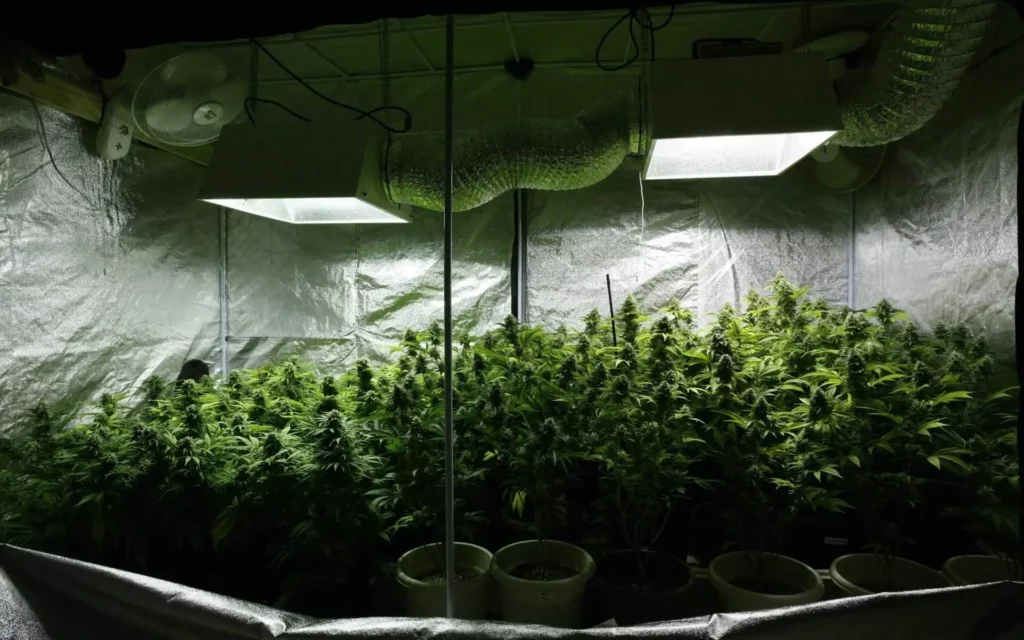
Basics of setting up ventilation for growing cannabis in tents
Ventilation inside your tent provides a constant supply of fresh air while regulating temperature, humidity, noise and odor levels. It helps draw fresh air from outside into the tent, replenishing old warm air and increasing carbon dioxide levels. There are six main components to a ventilation system. So, let’s discuss them in detail.
Linear fan
The integrated fan ensures a stable and controlled environment in the grow room. It regulates air flow, temperature, carbon dioxide distribution and humidity. The fan can be installed either at the inlet or outlet of the duct. The purpose of the fan is to bring fresh air from outside into the growing area, providing the necessary air exchange and circulation to distribute enough carbon dioxide (CO2) for photosynthesis.
Precise control of temperature and humidity levels is essential for optimal cannabis growth. Linear fans can help remove excessively hot, stagnant or overly humid air, replacing it with fresh air. Too much heat and humidity can increase the risk of pest infestation or the development of diseases such as gray rot and mold. Adequate air flow also helps strengthen plant stems, favoring their growth and leading to healthier, more productive crops.
Exhaust fan
The exhaust fan plays a significant role in maintaining an optimal atmosphere in the growing area. Through the use of a carbon filter, the exhaust fans remove contaminated air from the growing area before it is released back into the environment. They control the temperature in the growing area, favoring healthy plant development.
Fans provide a continuous supply of fresh air to the plants by exhausting standing air. They also help in odor control by passing odorous air through a carbon filter. Not least, they play a role in removing excess moisture from the growing area, helping to reduce the risk of disease and unwanted insects.
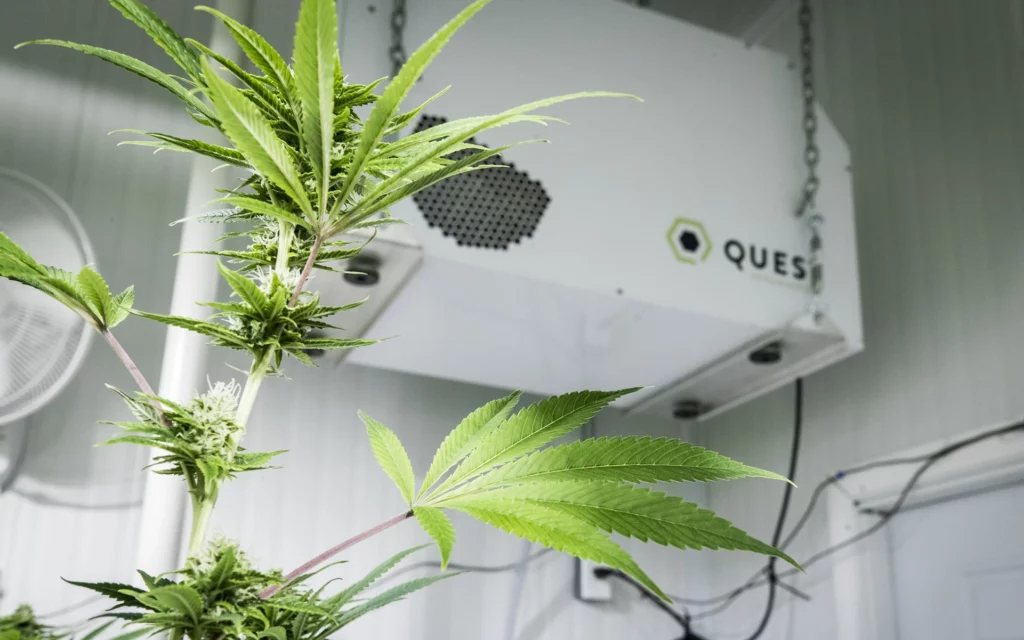
Oscillating fans
The vibrating fan promotes air circulation and maintains a stable microclimate in the growing area. These fans are located inside the growing area and help move air through the upper and lower canopy, while limiting stale air around the plants.
The gentle airflow mimics natural wind directions, and the fans rotate to provide ample airflow to each zone. This gentle movement helps strengthen plant stems and promotes healthy growth.
Air ducts
Ducts are used as ducts to remove stagnant air, humidity and excess heat, ensuring an optimal growing environment. They are often used to connect exhaust fans and carbon filters, and are particularly effective for large growing areas.
The main material used for ducting is aluminum, which is easy to customize. To ensure adequate air circulation and ventilation, it is important to consider the size, length of the ducts and the volume of the growing area.
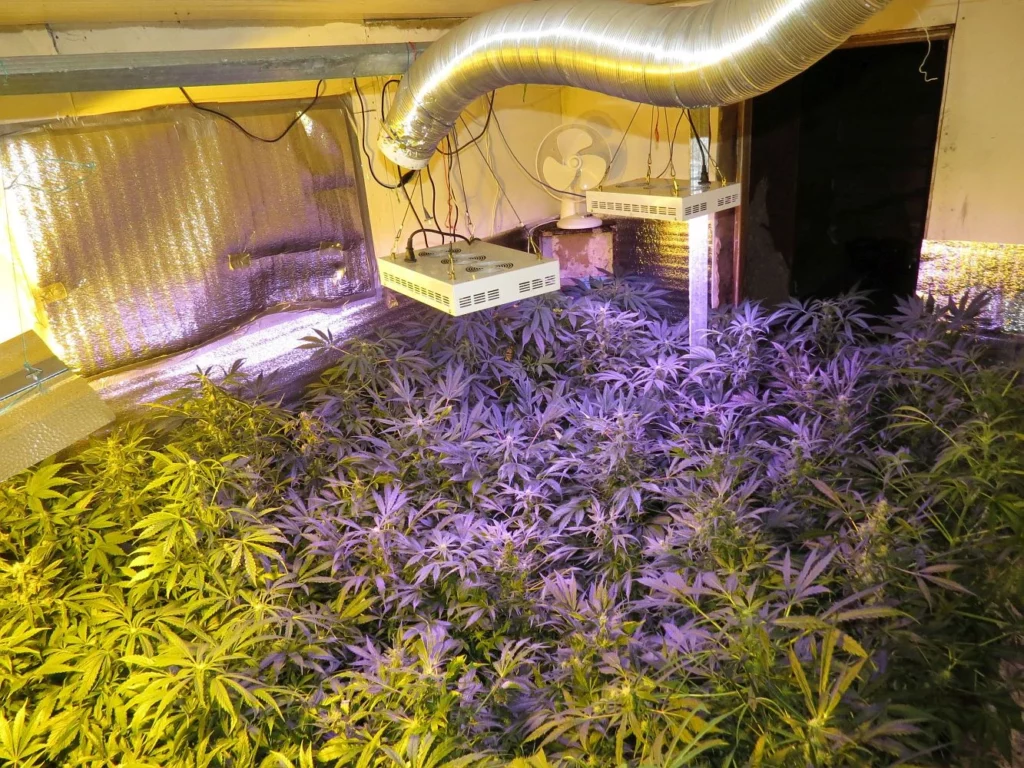
Carbon filter
A charcoal filter is necessary for plant varieties with a strong odor during flowering and helps to eliminate unwanted aromas during the growing process. It is based on the principle of absorption to remove aromatic compounds from the air. The charcoal has a vast surface area and the surface area of one gram of charcoal reaches up to 3,000 square meters, making it ideal for neutralizing strong odor in cannabis cultivation.
There are two main types of charcoal filters: granular and block filters. Block filters are predominantly used in large-scale growing operations. However, for hobbyists and small grow tents, a granular filter is an ideal addition.
Factors affecting airflow in the cannabis grow tent
The optimum airflow in the growing area can depend on various factors. So let’s discuss the six main factors.
Size of the cultivation area
If you grow plants in a small hobby tent, you won’t need the same airflow as a large greenhouse . To choose the right equipment for your growing cycle, it is important to assess the size of your cultivation area and calculate its volume to determine the right tools needed.
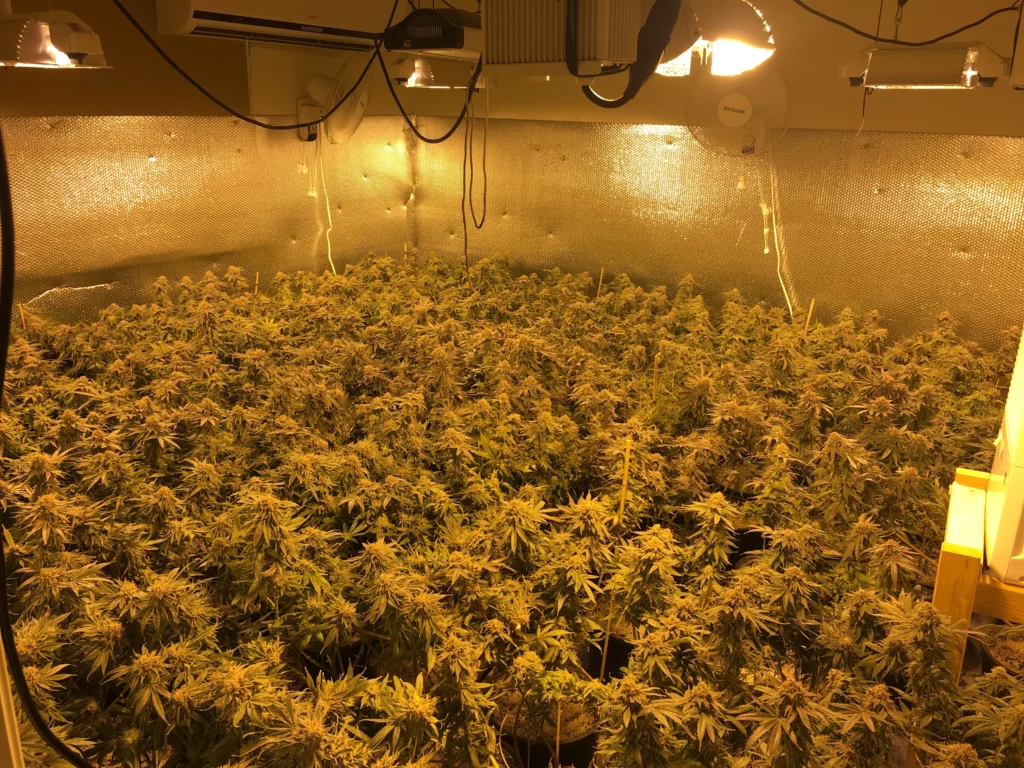
Exchange rate
In general, experienced growers recommend replenishing the air volume in the grow area every one to three minutes for optimal growth. For example, if you have a 150 cubic foot grow area, an airflow rate of 150-450 cubic feet per minute (CFM) will be required.
Ventilation system and equipment
A typical tent ventilation system usually consists of two fans: an exhaust fan and a supply fan. The exhaust fan removes excessive heat and stale air, while the supply fan draws in fresh air. The capacity of these fans should be selected according to the size of the tent and the desired air exchange rate.
Environmental conditions
The temperature outside can affect the temperature inside, and manufacturers often increase airflow CFM on hot days to prevent mold development. The location of the tent, whether in an attic, basement, or inside an insulated home, can also increase or decrease optimal airflow depending on environmental conditions.
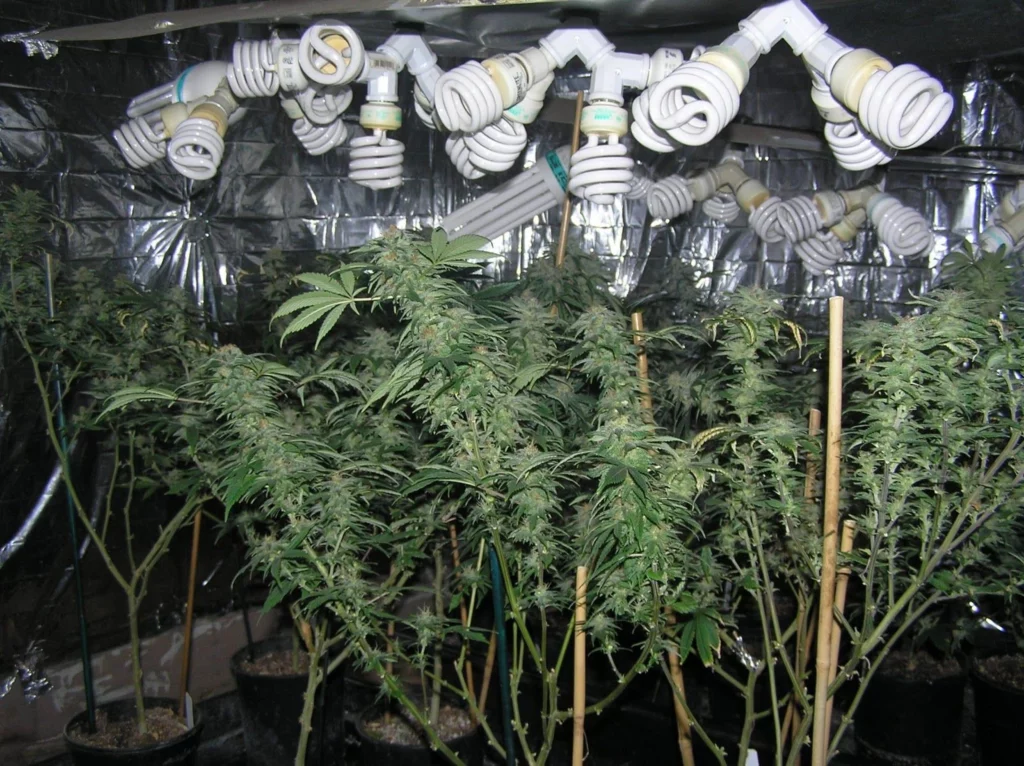
Air intake
Along with an active air supply, a passive air supply can help increase air flow in the growing area. Using strategically placed oscillating fans, small openings at the bottom of the growing area create a temperature difference that creates natural convection that draws fresh air into the growing area.
Lighting and energy consumption
The wattage of a light does not directly affect the recommended CFM. However, lights with more lumens often consume a more significant amount of energy, generating more heat. An increase in temperature throughout the growing cycle can significantly affect the air flow in the grow room!
Ventilation configuration – which method will work best for you?
Exhaust fans and carbon filter systems can be configured in a variety of ways to replenish fresh air and remove stale unwanted air. The main goal is to keep plants healthy in optimal environmental conditions.
If space inside the tent is limited, the ventilation system can be installed outside the tent if necessary. However, it is recommended that all ventilation systems are installed inside the growing area to minimize noise. Take a look at the examples below.
Carbon filter > Extractor > Air ducts
A charcoal filter can be used inside the growing area to clean the air of unpleasant odors before it goes outside. This can be a simple installation that helps to reduce noise from the equipment inside.
Carbon filter > Air duct > Extractor hood
The charcoal filter is installed inside the room and ducting connects it to an exhaust fan installed outside. The fan draws air through the charcoal filter and ductwork, then exhausts it outside.
Extractor > Air ducts > Carbon filter
You can place the hood inside the growing area and install the charcoal filter outside the growing area. The air passes through the ducts and filter to remove the odor before leaving the room. However, care should be taken as the odor can damage the power of the exhaust fan.
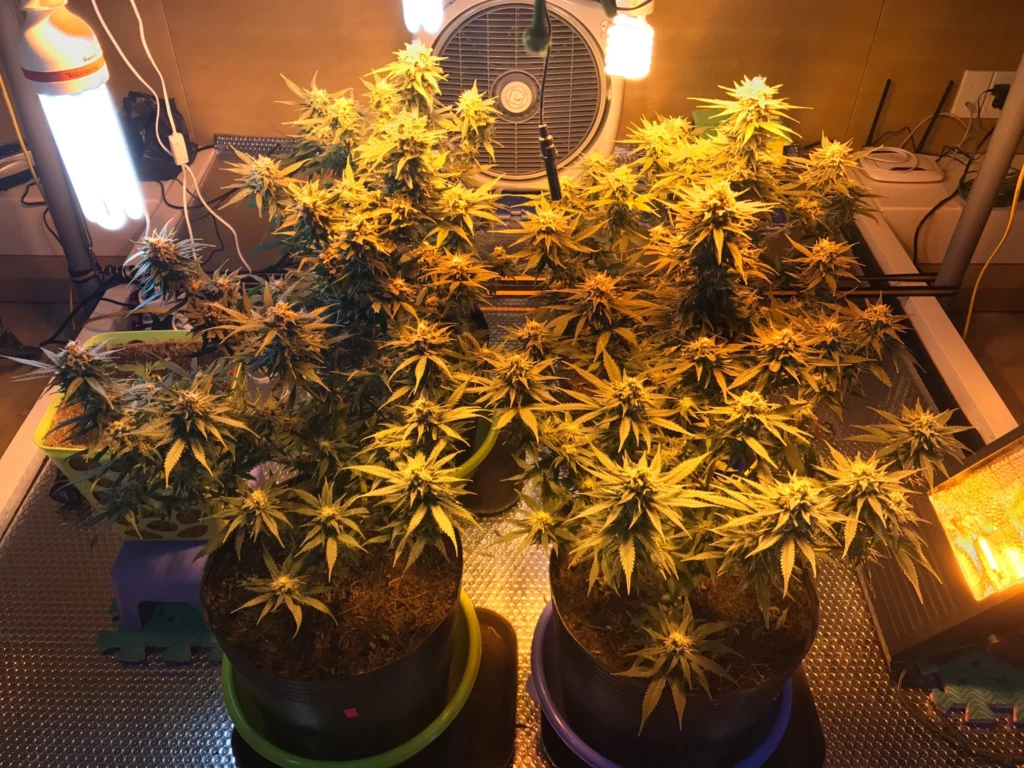
Air duct > Exhaust > Carbon filter
The exhaust fan and filter can also be installed outside the growing area. The fan draws air from inside through the ducts and carbon filter, and exhausts it outside the growing area. This ventilation system is ideal for confined spaces, but can be loud for sound-sensitive people. For best results, the ducts should be straight and short.
Carbon filter > Reflector > Extractor
Those who use powerful HPS lamps may be interested in air-cooled hoods in front of the reflector shroud. The exhaust fan draws air in through the reflector and passes it through ductwork and a carbon filter before releasing it outside. When selecting a ventilation system, it is important to consider the size of the room, the number of plants and the environmental conditions.
Conclusion
Before starting the growing cycle, you should consider the importance of adequate ventilation. Its absence can have a negative impact not only on yields, but also on your own patience as a grower. A reliable ventilation system is a must if you want healthy plants, exotic terpene profiles and rich yields.
If you have any thoughts on what makes a perfect ventilation system, please share them in the comments below. Any helpful hacks, tips or tricks would be appreciated!











